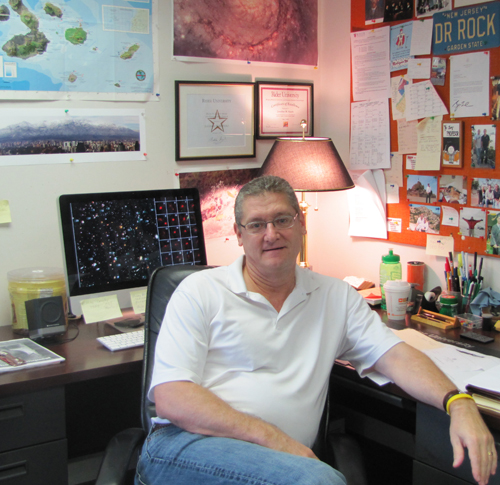Tuesday, Sep 28, 2010
Dr. Jonathan Husch, chair of Rider University’s Department of Geological, Environmental, and Marine Sciences (GEMS), was recently selected to serve on the New Jersey Department of Environmental Protection’s new Science Advisory Board.
by Meaghan Haugh
Dr. Jonathan Husch, chair of Rider University’s Department of Geological, Environmental, and Marine Sciences (GEMS), was recently selected to serve on the New Jersey Department of Environmental Protection’s new Science Advisory Board.
The 16-member board, composed of scientists, educators and experts, will guide the department on many complex environmental issues, including air and water quality, wildlife issues, beach erosion, and protection of open spaces facing the state. There are four standing committees, including Ecological Processes, Public Health, Water Quality and Quantity, and Climate and Atmospheric Sciences. The board met in early September and was immediately challenged with a 17-item priority list of key statewide environmental issues to consider.
DEP Commissioner Bob Martin said by including “New Jersey’s best and brightest people on board, in science, academia and business,” the department will be able to take actions based on science and facts.
“The magnitude of what we are dealing with at the DEP is expansive, from air and water quality and wildlife issues to beach erosion and dunes, and protection of open spaces and natural resources,” Martin said. “We'll be able to tap the Science Advisory Board’s expertise to help us address these issues, to let us know if what we are proposing makes sense based on facts and the latest scientific data.”
In addition to Husch, a number of board members hail from academia, representing Rutgers University, Seton Hall University, Clarkson University, Drexel University, Montclair State University, Monmouth University, New Jersey Institute of Technology, Stevens Institute of Technology, University of Medicine and Dentistry of NJ, Kean University and William Paterson University.
Husch, who will serve a two-year term on the board, said he is not only honored to serve the larger community by sharing his vast knowledge in the field, but he said his presence on the board will also increase the visibility of Rider and its science programs.
“I think the idea is for the DEP to get input from a wide cross-section of scientists so they come up with the best decisions possible when deciding on regulation or policy,” Husch said. “As one of the few true geologists on the board, I will be able to bring in a different perspective about geological processes, hazards and resources. Rather than dealing with crisis of the moment, geologists look at how the earth has changed over a much longer period of time – four and a half billion years.”

